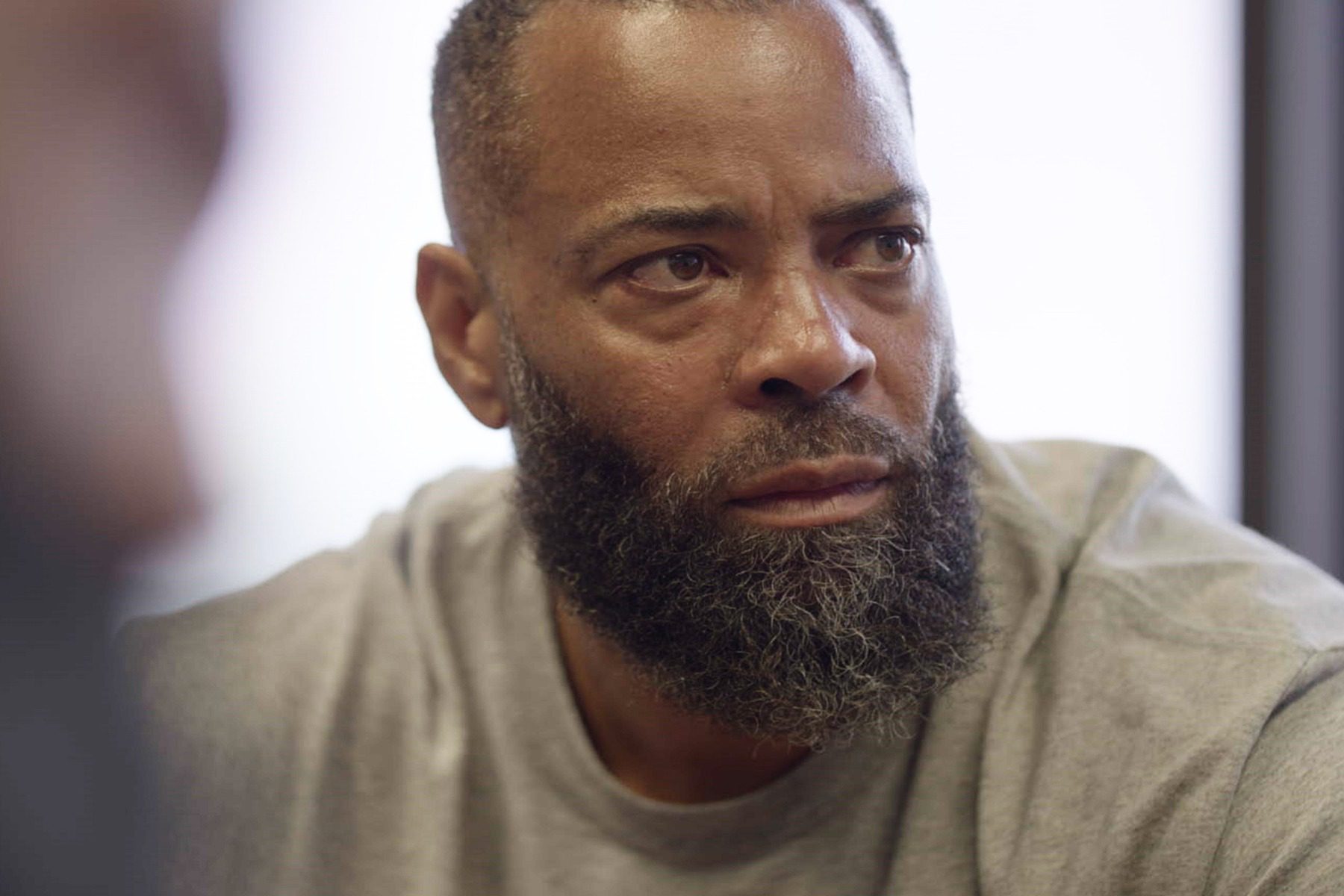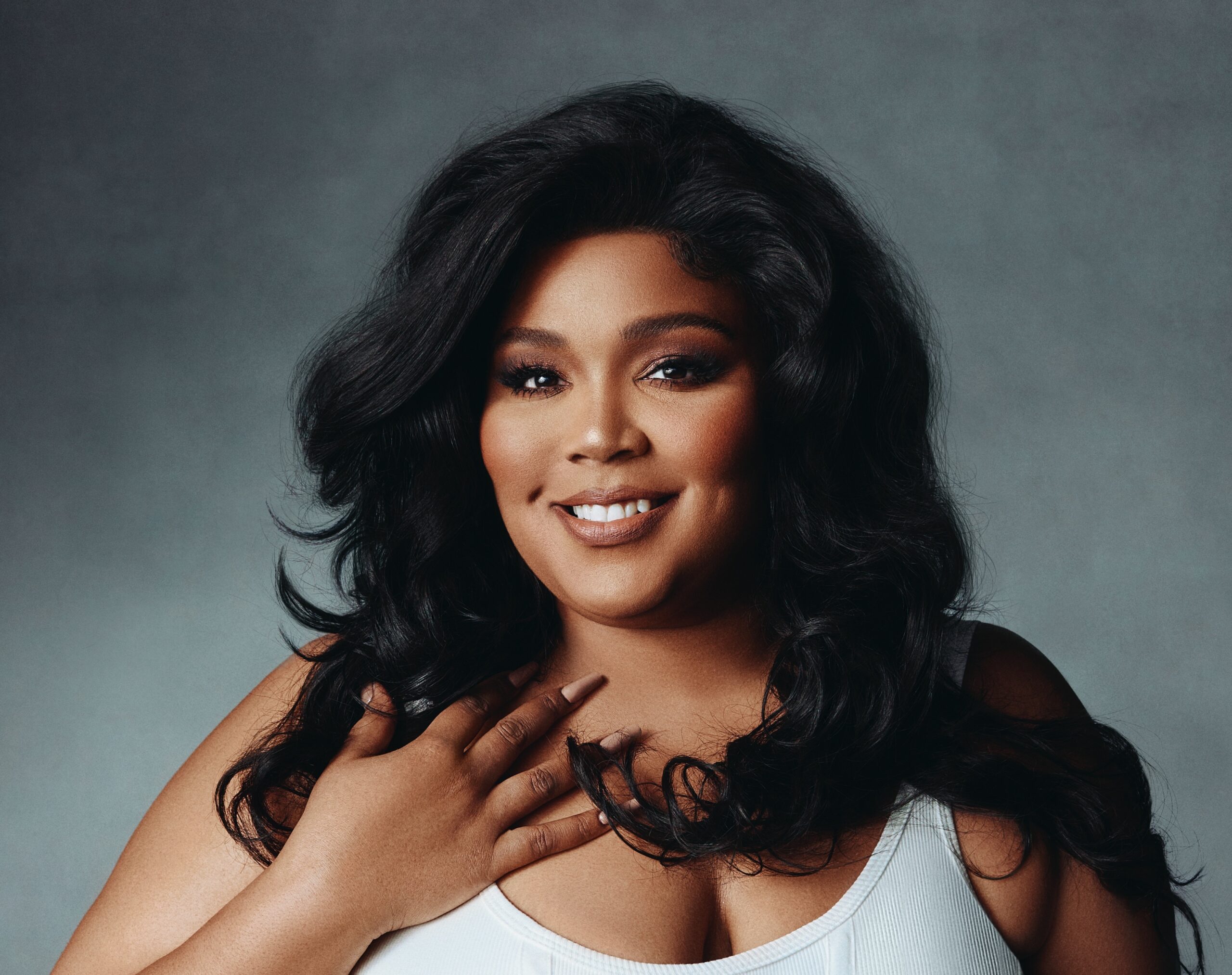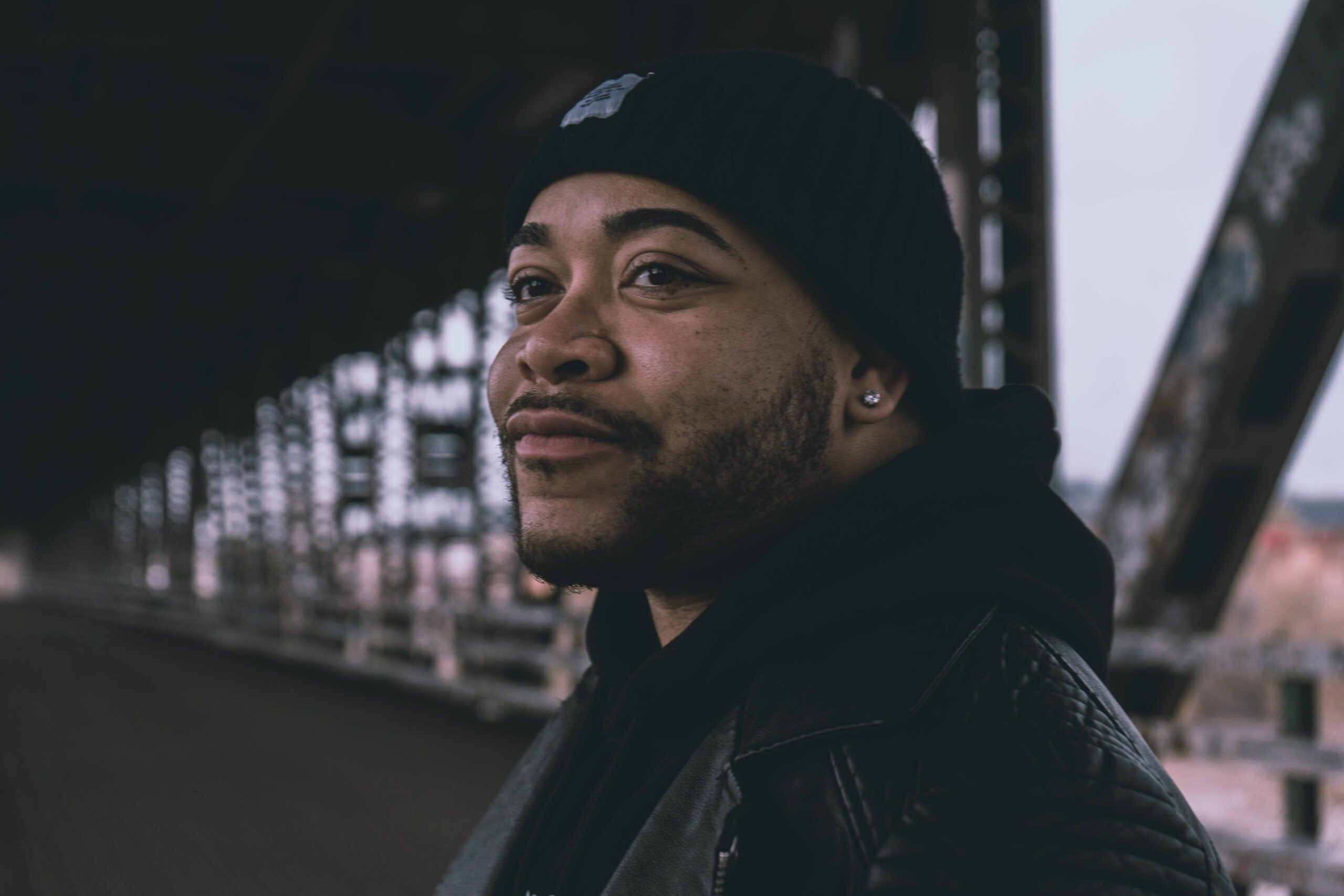
The D.O.C. on Finally Getting His D.U.E.
Between 1988 and 1992, the D.O.C. released his platinum-selling, still-jaw-dropping debut album, No One Can Do It Better, and ghost-wrote rhymes for N.W.A’s Straight Outta Compton, Eazy-E’s Eazy-Duz-It, and Dr. Dre’s The Chronic. He also cofounded Death Row Records with Dre and Suge Knight, and he mentored a young Snoop Dogg on the ins and outs of songcraft when the young rapper only knew how to freestyle. All of those achievements, though, are overshadowed in some ways by the 1989 accident in which the D.O.C., a.k.a. Tracy Curry, lost his voice — a tragedy that reshaped his life in an instant.
After a night at the Beverly Hills Hotel that November, the rapper was on his way home when a couple of cops spotted him speeding recklessly through the posh neighborhood. “Now I’m just loaded,” he recalls, laughing now that he’s had enough time to come to terms with what happened next. “So I hit a couple of street corners and pull over in front of somebody’s mansion. I turned off all the lights, leaned over in the front seat like they would pass by me and go, ‘Where did he go?’ They walked up on the car about two minutes later, tapped on the window, and I got out and gave them some shtick and, you know, they loved it.”
blogherads.adq.push(function () {
blogherads
.defineSlot( ‘medrec’, ‘gpt-dsk-tab-article-inbody1-uid0’ )
.setTargeting( ‘pos’, [“mid-article”,”mid”,”in-article1″,”mid-article1″] )
.setSubAdUnitPath(“music//article//inbody1”)
.addSize([[300,250],[620,350],[2,2],[3,3],[2,4],[4,2],[640,250]])
;
});
The cops let him go with a warning. Later that night, he fell asleep at the wheel and crashed through his windshield when his car hit a tree. When he recovered in the hospital, he realized he couldn’t speak. More than three decades have passed since the D.O.C. survived that wreck and the surgery that followed, and his voice still sounds a bit like wind dragging loose gravel through a canyon. It’s raspy and husky, and it only makes anyone he’s speaking to listen closer to what he has to say. Although he has put out a couple of albums since, the accident effectively ended his rap career.
Now a new documentary, The DOC, which the rapper produced and first-time film director Dave Caplan helmed, is telling Curry’s full story, from his humble beginnings in Dallas to his recent religious reawakening. The film’s talking heads are a who’s who of hip-hop, including interviews with Dr. Dre, Ice Cube, Tone Loc, Snoop, Eminem, Too $hort, Xzibit, and on and on, as well as members of Curry’s family and his ex Erykah Badu. The movie premieres tonight in New York as part of the Tribeca Film Festival.
Earlier this week, the D.O.C. spoke with IndieLand via Zoom about the film and how he’s turned his life around.
What do you hope people get out of seeing your story?
It’s purposeful. This was a purposeful life that I’ve led. And it took me a long time to get here — 33 years to let those burdens go. But I see it pretty clearly today.
In the film, Dr. Dre said you had to lose your voice to save your life. How did you feel hearing that?
I agree with that. Had I kept my voice, I might not be here today.
You’ve had an on-again, off-again friendship with Dre. The film opens with your reunion with him. When I interviewed you a few years ago for an article about N.W.A’s Efil4zaggin album, you said you thought you’d never talk to him again. How did it feel seeing him again?
In these 33 years, we’ve had some real knockdown, drag-out confrontations. We get angry, and the lapse is usually about five or six years, because we go at it. You must have caught me in the middle of one of those moments.
There’s a moment towards the end of this film where Dre is saying to me, “You should be concentrating on other things. It’s obvious that you were meant to be doing something else.” And the way he delivered that sentiment… Imagine that a person that’s that caring made “Fuck tha Police.” The way that he delivered that line was so compassionate. Just for me, as a budding filmmaker, to be able to get that guy to come across that graciously was dope to me.
Ice Cube said he was really impressed by your process and that he felt that you elevated the flow of N.W.A. How do you describe your contribution to that group?
I always said I was a spark, and that resonates. I was a really talented dude with great ideas that performed at a high level. That means everybody had to come up here to where I am, or it didn’t match. We pushed each other, especially Cube and me. We competed a lot, but it was friendly competition. He made me go back and rewrite my stuff, and I made him go back and rewrite because nobody wanted to be outdone. We made each other the best we could possibly be. Even though I could never touch what Cube does, I know that he did a whole lot for who I am.
blogherads.adq.push(function () {
blogherads
.defineSlot( ‘medrec’, ‘gpt-dsk-tab-article-inbody2-uid1’ )
.setTargeting( ‘pos’, [“mid-article2″,”mid”,”in-article2″,”mid-article”] )
.setSubAdUnitPath(“music//article//inbody2”)
.addSize([[300,250],[300,251],[620,350],[2,4],[4,2],[3,3],[2,2]])
.setLazyLoadMultiplier(2)
;
});
After you lost your voice, you convinced Dre to go solo and do The Chronic. How did you talk him into that?
We were having problems with [N.W.A’s label] Ruthless, and it just seemed like it wasn’t going anywhere. The idea was for us to branch out and do something on our own, but we didn’t have an artist. It was so simple to me, “You’re the artist.” And Dre was never a solo guy. That was never his train of thought. So I had to beat it into him. Like, “What else are we going to do? We got these great songs you’re making. Let’s go.” But once Snoop came, I think Dre began to see the possibilities. After that, everything snowballed.
Snoop gave you a lot of credit in the film for helping him with songcraft. What did you teach him?
He just freestyled his records, no different from the kids now. But even as a freestyler, he set up bars well. Snoop was all about charisma. It was never about the amazing wordplay; it was about how he said the words that he said. I just helped him refine that and showed him different tricks and stayed on him about what you’re trying to accomplish when you’re writing a song. He wrote 99 percent of “G Thang” just after a conversation, with very little mistakes. That was the introduction to some of his best work ever, if you ask me, because he had to write for both Dre and himself in a way that made Dre seem like he was talking from his perspective and Snoop talking from his perspective, yet still keep that continuity. He was just a genius off top. For me, it was a blessing because I got a chance to put what I wanted to be into him, and he regurgitated that shit back in a way that was triple platinum.
You cofounded Death Row Records, but the doc doesn’t include much about how you and Dre broke free from Ruthless Records. Why is that?
I didn’t want to linger on the theft, the deceit, and the blood and the beating up — all those elements exist in this thing enough for you to know where I was. Some things in this documentary, I treaded lightly because it was important for me that the story be told of these people and not the sensationalized things that happened along the way.
blogherads.adq.push(function () {
blogherads
.defineSlot( ‘medrec’, ‘gpt-dsk-tab-inbodyX-uid2’ )
.setTargeting( ‘pos’, [“mid”,”mid-articleX”,”in-articleX”,”mid-article”] )
.setSubAdUnitPath(“music//article//inbodyX”)
.addSize([[300,250],[300,251],[3,3],[620,350],[2,2]])
.setLazyLoadMultiplier(2)
;
});
I think that’s where a lot of the documentaries on artists from this genre miss, because the filmmakers focus so much on the sensationalized things that happen in the journey. They forget that they’re writing about people that’s going through this shit. If you focused on those people and their lives and what they feel, then the stories that you’re telling could be a lot more purposeful, and you get a lot more out of it.
Just focusing on the facts, not the sensationalism, what do you remember about what happened?
The whole “Suge beating the guy up with bats” … In the long run, it was a disagreement between guys that were really good friends that couldn’t be resolved. When you get business involved and people get the lawyers … [Laughs.] He was a different guy, and he resolved things a different way, and we were kids in a different place. With Dre and Eazy, I know for a fact that Dre really tried to resolve that stuff before he did anything. They just couldn’t do it.
What was your vision for Death Row?
We had already done it [with Ruthless]. I say this with as much respect possible: If Eazy had seen what he had — if he’d seen that he had four or five guys that were representative of what hip-hop would be for the next 30 years … and he just let them all go. Like, wow. At some point Warren G was coming with Snoop, and the whole thing could have really been Motown. For me, that’s what it was supposed to have been with Eazy. That’s what it was supposed to have been with Suge and Death Row. But money and greed and guys falling in love with their avatars — their characters — you start forgetting that we’re just freaking people trying to make a living and make a better way for ourselves and our families and the people that come from the places we come from.
Snoop bought Death Row this year. That has to feel good for you.
I’m a spiritual guy. Everything happens for a purpose. The way Snoop talks about what he’s going to do with that label, making sure all the old debts are paid and all the people get their business together, I think that’s a blessing. And whatever he needs for me, I’m there to back him up 1,000 percent.
How did you come to peace with Dre’s success during a time when you weren’t able to make records?
My energy was in such a dark place, my only win was the wins [of the people I worked with]. So I couldn’t hate their wins; their wins were my wins. That’s the only way I could feel like I was actually winning. But the self-sabotage … When you’re in the Sunken Place, you can’t win because you’re not going to allow yourself to win. 2020 was when it came for me. It may sound cliché, but I really had a come-to-Jesus moment, and the Spirit says that I can let the pain go, because it wasn’t me that did it in the first place. That was a divine path to bring me to this point.
blogherads.adq.push(function () {
blogherads
.defineSlot( ‘medrec’, ‘gpt-dsk-tab-inbodyX-uid3’ )
.setTargeting( ‘pos’, [“mid”,”mid-articleX”,”in-articleX”,”mid-article”] )
.setSubAdUnitPath(“music//article//inbodyX”)
.addSize([[300,250],[300,251],[3,3],[620,350],[2,2]])
.setLazyLoadMultiplier(2)
;
});
If you could speak to the cops who pulled you over the night of your wreck but let you go even though you were obviously intoxicated, what would you say to them?
I would say thank you. There is purpose in everything. If you are wise enough to understand that that’s a fact, you understand that destruction comes before construction. What some might have seen as the worst night of my life was actually the night that began building me for this event.
Had I known that when I had the wreck, maybe I wouldn’t have gone through 33 years of so much pain and drama. But those are lessons that I had to learn to be able to do what I was meant to do, to be able to use the voice that I was meant to have. And even though that last one was pretty powerful, I think this one, with much less effort, is much more powerful.
In much of the film, you’re considering getting vocal cord repair surgery that might or might not work, and it seems kind of unresolved by the end of it. How do you feel about that now?
Well, this documentary was super-cathartic for me. Through this process, I learned through the love that these people showed me what this life was worth, and what’s possible with it. Between my wife and my babies, and my friends, I learned that there’s more important things than rapping. Two years from now, [the doctors] might say, “Shit, we can give you [your voice] back, and it’s 100 percent,” and I’d be more willing to go.
I want to be here for my kids. This voice is the only voice my kids know. If I came in and talked like the old me, I might fucking freak them out. So I’m just going to continue to try to do the best I can and let this journey be a positive for the young ones that are coming up, because there’s another D.O.C. out there and Snoops and Dres, and there are other possibilities to be what those two could have been.
Speaking of inspiring people, one of my favorite scenes is seeing Eminem become a total fanboy for you. You don’t see that side of him too often.
Yeah, I’m always sort of on eggshells around him. I don’t want to say the wrong shit, you know what I mean? Because the guy is so good that I don’t want him to think … I’m just thankful and really grateful that the dude is such a lover and a fan of this art. It really speaks to what kind of guy he is.
Are you working on new music?
I don’t want to speak too much on it. There’s a guy named Fat Mike who belongs to a punk band called NOFX. He started working with a band called the Codefendants. I did a song with those guys, and people are freaking out about it, so must be pretty good. So maybe that’s another lane I can go into. I also started working with a small gaming company called Esposure down here in Dallas that teaches STEM principles through gaming. I’m building a curriculum based around arts and entertainment and technology to give these kids what traditional school isn’t giving them in a format that they could be interested in from somebody they really might listen to and try to step up our education here in this country. There’s so much work to be done. I don’t need to just hold my penis and rap anymore.
blogherads.adq.push(function () {
blogherads
.defineSlot( ‘medrec’, ‘gpt-dsk-tab-inbodyX-uid4’ )
.setTargeting( ‘pos’, [“mid”,”mid-articleX”,”in-articleX”,”mid-article”] )
.setSubAdUnitPath(“music//article//inbodyX”)
.addSize([[300,250],[300,251],[3,3],[620,350],[2,2]])
.setLazyLoadMultiplier(2)
;
});
Ultimately, what do you hope this film accomplishes?
Healing. I want people to see healing. I want people to see me heal in front of the whole world, expose all of my bullshit, get out there with my heart wide open and heal it and then move forward and take from that, extrapolate from that what we could do as communities, what we can do as hip-hop, what we can do as a country.




